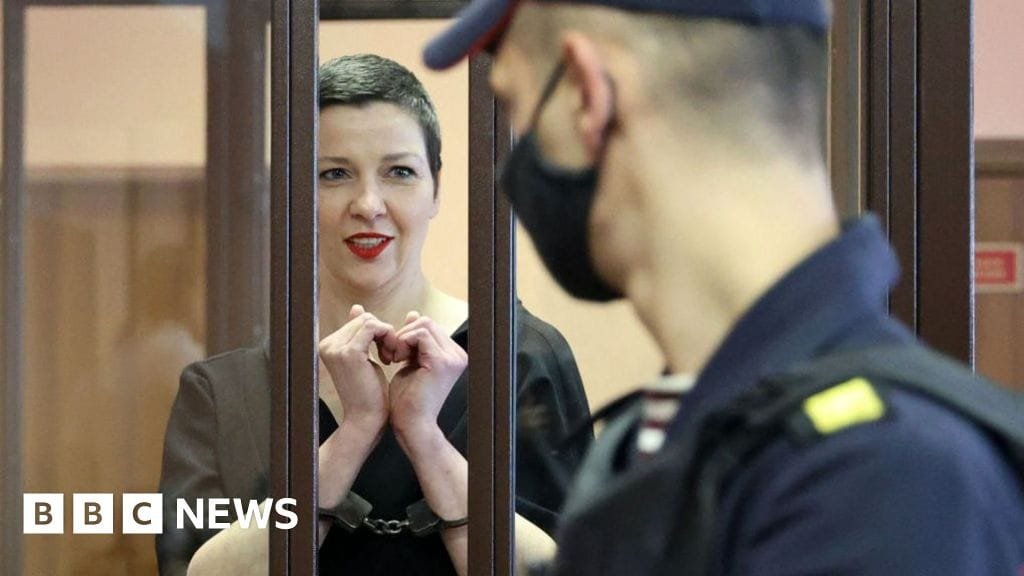Ryhor Astapenia himself was recently sentenced in absentia to 10 years, along with other academics and analysts, for a supposed plot against the government.
After imprisoning political activists and journalists in Belarus, prosecutors had turned their attention to those who criticise the country abroad.
“They do it because they can,” he shrugs. “They see no reason to stop.”
It was two years after the mass protests of 2020 that the police turned up for Dmitry Luksha. By then, he had imagined he was safe.
“Those two years were my undoing,” he knows now, having spent 28 tough months in jail.
When he was released, unexpectedly, he thought he would stay in Belarus. But that was impossible.
“I would jump whenever the lift opened. Or when a minibus with tinted windows pulled up. And there were so many armed police in the street,” Dmitry explains, from the safety of Warsaw where tens of thousands of other Belarusians now live, for the same reasons.
“You understand that you’ve done nothing wrong, they shouldn’t be coming for you. But you can’t tell your heart that. It’s the brutal Belarus of today, and your heart is afraid.”
That’s why Dmitry hopes the amnesties will continue, whatever is driving the process: Viasna still lists 1,349 political prisoners in Belarus.
“I really hope the numbers released will grow, so that those with long sentences also get out. Those people live in hope that someone will come and tell them: it’s your turn. I really hope they do.”
Source link
